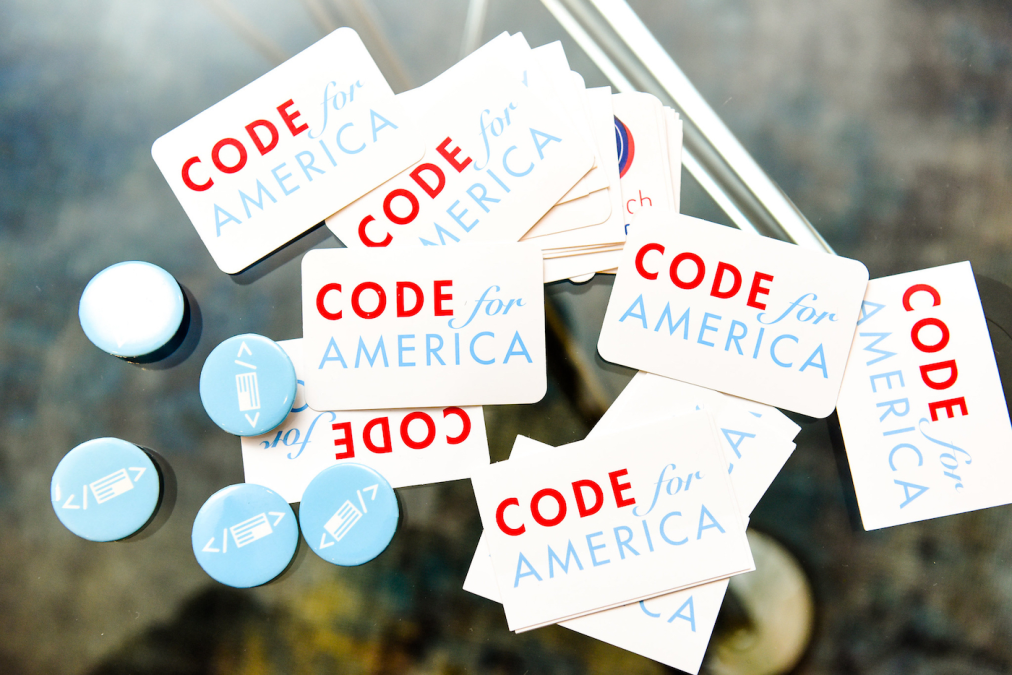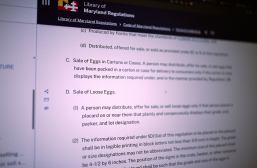Code for America to sever financial ties to its local brigades

The future of Code for America’s Brigade Network — a collection of local groups of civic-minded coders and engineers — was thrown into uncertainty last week when the national organization announced it plans to cut off operational support for brigades, leaving some 60 volunteer groups needing to chart paths to financial independence.
In a memo posted on the nonprofit’s discussion board, Code for America CEO Amanda Renteria wrote that over the next several months, the nonprofit would stop acting as its brigades’ fiscal sponsor. Under that relationship, Code for America used its tax-exempt 501(c)(3) status to provide fiduciary oversight and financial management to the local groups, which typically lack the resources to handle the bookkeeping that charitable organizations are required to do under state and federal tax law.
Renteria also announced several layoffs affecting the Code for America team that worked with the Brigade Network.
In her memo, Renteria wrote that the stresses of the past three years depressed the Brigade Network, with the pandemic making it difficult to convene groups and other factors driving down volunteerism.
“We learned that this post-pandemic environment has challenged volunteer engagement for more reasons than just COVID,” she wrote. “Volunteerism is down across industries. There are growing privacy and security concerns with volunteers partnering with governments.”
As a result, she wrote, it’s also become more difficult for Code for America to raise money to support the Brigade Network. While the national organization stopped funding brigades’ operations — like money to cover pizza and beer at meetups and hackathons — in 2016, it has continued to chase philanthropic gifts to support civic-tech projects by its local groups. In 2021, it landed a $1 million grant from the Knight Foundation to support work by brigades in seven cities.
Many brigades also developed projects to help their surrounding communities during the worst of the pandemic: The Tulsa group built an app for the Oklahoma Department of Human Services for residents to apply for benefits, while the San Jose, California, brigade designed a chatbot for that city’s coronavirus response website.
With the fiscal sponsorship ending, brigades will now have to either form 501(c)(3) organizations of their own — a process that would require them to draft charters, appoint boards of directors, and file lengthy financial disclosures — or, more likely, find another organization to serve as fiscal sponsor.
‘Death knell’ or a ‘good thing’?
Some brigades see Renteria’s announcement as the final blow: “It’s unfortunate, but this is likely the death knell for Code for New Orleans,” that group’s captain, Ryan Harvey, wrote in a comment on the memo. “We are very small. I’ve been leading the group solo for several years now and had no success bringing on new leadership partners.”
Harvey declined StateScoop’s request to comment further, but other Code for America brigades have already started moving away from the parent organization in favor of nonprofit outfits that specialize in fiscal sponsorship.
“A few have taken advantage of that,” said Chris Alfano, a former head of Code for Philly, which in late 2019 moved to the Open Collective Foundation, a nonprofit organization that handles financial and legal work for nearly 500 groups. It makes money by taking an 8% cut of what its members raise.
Alfano, the chief executive of Jarvus Innovations, a civic-tech consulting firm in Philadelphia, said Open Collective offers a “tech-forward” platform that made it easy for Code for Philly members to raise money and draw on those funds to cover expenses — like a weekly hack night — without having to spend much time on the paperwork.
Open Collective also sponsors brigades in Denver, Boston, the Carolinas and Dayton, Ohio. Other Code for America brigades have moved to similar hosts, like BetaNYC, which is now affiliated with the Fund for the City of New York.
Code for America’s priorities have also shifted in its 13-year history, with the organization now focused on large-scale projects funded by major philanthropic gifts — like the Safety Net Innovation Lab it launched last year after a $100 million investment. And that’s decreased the organization’s ability to support its local chapters.
“As our impact via direct service grew, our organizational structure, ways of working, and core capacities shifted to support that type of delivery — and it has become harder for us to do that while providing effective and efficient support and fiscal sponsorship for a large, decentralized base of volunteers, especially without significant multi-year resources available to support the necessary infrastructure for Network convening and engagement,” Renteria wrote.
To Alfano, Code for America distancing itself from the brigades is a welcome development, even if the timing and rationale are not. The organization, he said, wasn’t an ideal fiscal host, with some transactions — like reimbursements — taking weeks to process, and Code for America headquarters often having priorities other than tending to the brigades.
“It’s a good thing they’re getting out of it,” he said. “It’s bad that instead of doing it years ago, it’s reactive rather than proactive.”
‘We’re the feeders’
But, Alfano said, this move is also happening just as many brigades are figuring out their post-pandemic situations. In addition to the downturn in volunteering, brigades face changes in social habits and the civic-tech industry.
“It’s not the same atmosphere it was,” he said. “Before, it was a social gathering. Now a lot less people want to leave their house. The civic-tech movement has evolved a lot. More people get to do it as a job now.”
Yet the brigades say they still need Code for America headquarters as a convening force. The national group collaborates on some efforts with the volunteer groups — many are pursuing projects that promote enrollment in the Affordable Connectivity Program, the FCC initiative that gives low-income households discounts on their internet bills. Code for America also runs a Slack channel and a Discourse server for brigade volunteers, and it hosts an annual convention called Brigade Congress.
“That’s one thing the network can’t do on its own without a new central organization,” Alfano said.
The brigades have also acted as a farm system for the wider civic-tech community. Many volunteers, Alfano said, have gone on to full-time roles at Code for America, local governments and the software industry. The Code for America employees who were laid off as part of this restructuring all had roots in the Brigade Network, according to Renteria’s memo. San Francisco Chief Data Officer Michelle Littlefield was a co-founder of the brigade in San Mateo, California.
“We’re the feeders,” he said. “A large portion of those folks came up through the volunteer groups. Those are multi-year trajectories.”
In an emailed statement, Hashim Mteuzi, Code for America’s senior program director for local initiatives, said the organization’s finances prompted changes in its relationship with the local clubs.
“Our work has evolved, and there has been a decrease in funding available to support a decentralized network of brigades,” the statement read. “In 2023, we will embark on a set of changes to our relationship with the Brigade Network that we believe will enable us to more efficiently collaborate with volunteers in ways that deliver significant impact in advancing equity and alleviating poverty.”
Renteria’s memo last week stated that remaining members of Code for America’s Brigade Network team, along with the organization’s finance department, will help local groups find new fiscal sponsors over the next six to eight months. She also scheduled a series of Zoom calls throughout February for brigade members to ask questions about the process.






